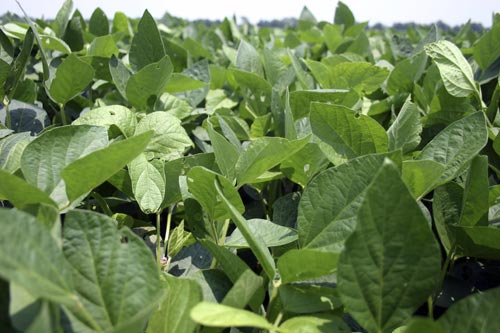September 7, 2010

Mid-South farmers are doing things in our weed control programs that are not sustainable.
I told a group recently that for most of my career I always had good news. In the position I was in I had to look into the crystal ball several years down the road. As we had weed resistance problems developing in the field, we were already looking at two or three herbicides that were better anyway, so it was no big deal.
Herbicide resistance made for nice academic discussions, but from a grower point of view there was good reason to be complacent. There is much more reason to be concerned now as the crystal ball is much cloudier. For that reason my message is we can not afford to lose the technology we have now.
The herbicide resistance picture in soybeans and cotton is very clear. If we continue the current trend, we will use up herbicide modes of action one at the time. Perhaps new technology will come along often enough to bail us out, but I do not see how you can bet the farm on that.
The situation in rice is somewhat less predictable because of options such as water seeding and pinpoint flooding at least on the zero grade land.
As some of you know, when I went through my first second-childhood, instead of the Corvette I bought a semi. I have not given up on the Corvette, but as a John Deere collector, the semi made more sense at the time. The panoramic view from the truck has certain advantages — especially for weed scouting.
In mid-July, we made a trip to northern Indiana and marveled at how clean the soybean crop was from one end of Illinois to the other. I was thinking perhaps the guys up there are right and they just do not have the resistant weed problem. We made the same trip the second week in August and the waterhemp had blown through the soybean canopy from one end of the state to the other. This is not just happening in the South.
Best soybean weed control
I do not have to think the sky is falling to know that we are seeing the best soybean weed control technology many of us will ever see being rapidly devalued right before our eyes.
I was at another meeting recently and heard a speaker say that the supply of LibertyLink soybeans should be adequate to meet the demand in 2011. My thoughts were if that is the case there is not enough demand. My reasoning is not to sell LibertyLink soybeans. The point is all of the LibertyLink soybeans right now are being planted in fields where the pigweeds have overgrown the Roundup Ready technology. In those cases one technology has been used up and we are starting on the next one.
I do not have to be gloom and doom to know there are only two places to be regarding the Roundup Ready resistance freight train. You can be out front and try to out-run it with a better mix of crop, herbicide and trait diversity, or you can attempt to pick up the pieces after the train has run over you. I am optimistic enough to believe you can still farm either way. However, it will be much easier if you keep the Roundup Ready technology as valuable on your farm as it ever was.
I do not have to be a pessimist to know we have all but lost that technology on too many farms in Arkansas. That is forcing farmers to get off on the wrong foot with LibertyLink by simply having to abuse that technology from the start. We are on the wrong end of the train.
About the Author(s)
You May Also Like




